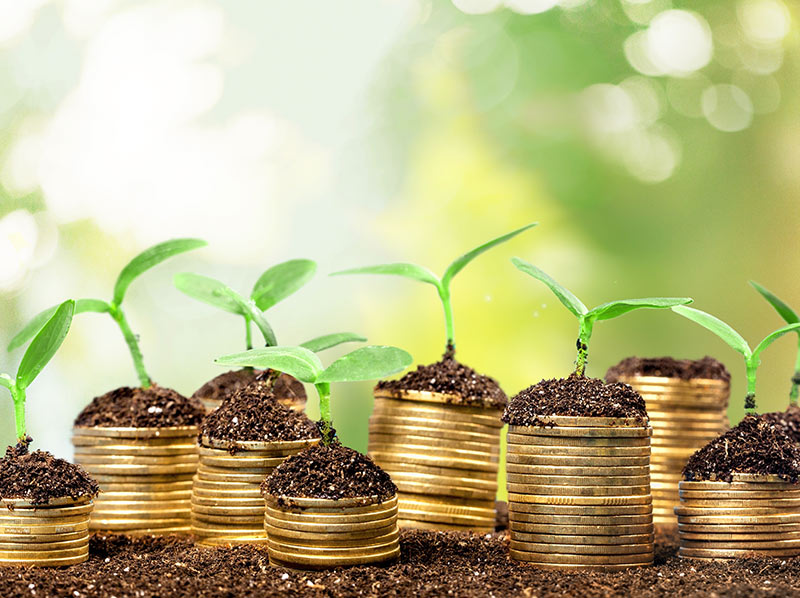Sustainable finance is full of Greenwashing. Economist Report

Are the supposedly green funds hiding something? The insights of the weekly The Economist
Investors know Tesla's rise all too well. Shares of the electric vehicle maker are now worth nearly nine times what they were in early 2019. But that's no exception. As political leaders around the world begin to send clearer signals about their willingness to tackle climate change, the private sector is also getting excited, and a green boom is underway.
More than 40 green companies have seen their share prices triple since the beginning of 2019. Six have surpassed Tesla. Beneficiaries include all types of emissions saving companies, from solar panel companies to hydrogen fuel cell manufacturers.
Meanwhile, many large companies in other industries have begun to boast of their green credentials. Renewable energy stocks have stalled in recent weeks, in part because investors worry about the prospect of a rise in interest rates, but other businesses have taken off. In Europe, the price of carbon has risen to a record high. The prices of metals, such as copper and lithium, which are used in electric cars, are also rising.
The boom reflects the surge in investor demand. Everyone from oil majors to WallStreetBets day traders are spending on climate-friendly projects and stocks. Meanwhile, the asset management industry is commercializing an investment style that claims to take environmental, social and governance (esg) factors into account. So far this year, inflows into esg funds have accounted for around a quarter of the total, up from one tenth in 2018. On average, two new esg funds are launched every day.
Unfortunately, the boom was accompanied by rampant "greenwashing". This week The Economist rattles off the numbers on the 20 largest esg funds in the world. On average, each of them holds investments in 17 fossil fuel producers. Six have invested in ExxonMobil, the largest American oil company. Two have stakes in Saudi Aramco, the world's largest oil producer. One fund holds a Chinese coal mining company. Even esg investment is certainly not a champion of social virtue. The funds we reviewed invest in gambling, alcohol and tobacco.
Governments are starting to pay attention. Under Donald Trump, US regulators sought to thwart esg investing, which the White House saw as a left-wing conspiracy. On the contrary, President Joe Biden's administration sees it as a potentially useful weapon in fighting climate change. The Securities and Exchange Commission, the Wall Street regulator, worries that ESG funds are misleading investors.
What should governments do? One possibility is to follow the European Union approach. His latest Green Deal includes many new rules on sustainable finance. Underlying it is an elaborate state-run taxonomy that covers around 70 different businesses and aims to tell investors what's green and what's not. Inevitably, the effort ran into problems. Countries have furiously lobbied the European Commission to make sure their favorite energy source is labeled green. Poland and Romania, among others, want natural gas to be added to the green list, because they are planning to use it to replace coal.
Rather than the EU playing God, investors can decide for themselves what is green. But they need a big improvement in corporate disclosure. The current largely voluntary reporting system is fraught with problems. Companies reveal a lot of irrelevant nonsense, while often failing to reveal the few things that matter. Ideally, an asset manager would be able to calculate his portfolio's carbon footprint and how it might change over time. But many companies fail to strictly disclose their emissions, and often the measures made public by individual companies overlap, leading to double-counting when they all add up.
A better system would force companies to disclose their full carbon footprint, including the emissions of the products they sell and the goods and services they buy. It would help if big polluters also reveal how they expect their footprint to change and the amount of capital expenditures that go into low-carbon investments. In this way an investor could understand how much pollution his portfolio is responsible for today and what it could be tomorrow.
The results of that disclosure may come as a surprise. We estimate that publicly traded companies that are not controlled by the state only account for 14-32% of global emissions – so green investments may be only part of the answer. About 5% of these companies account for over 80% of total emissions. They are mostly oil producers, utilities, cement factories and mining companies. Better disclosure would also show that only a small number of companies are investing heavily in renewable energy or innovative technologies.
The combined effect would be to unmask the idea that vast sectors of the corporate world and the wealth management industry are saving heroes of the planet. And it would help investors put their money into truly green businesses, ensuring better capital allocation and a faster energy transition.
(Extract from the foreign press review by Epr Comunicazione)
This is a machine translation from Italian language of a post published on Start Magazine at the URL https://www.startmag.it/economia/la-finanza-sostenibile-e-piena-di-greenwashing-e-il-momento-di-maggiori-informazioni-dice-leconomist/ on Sat, 22 May 2021 04:52:18 +0000.
